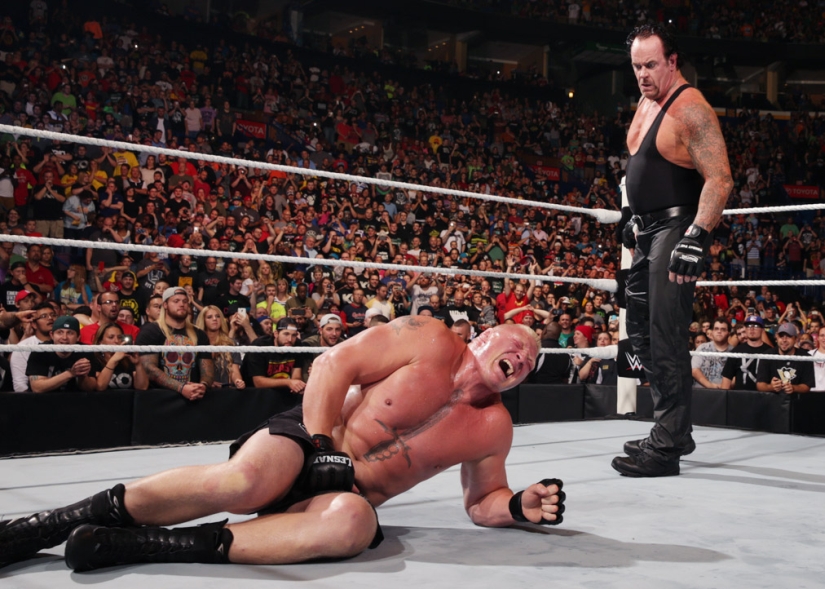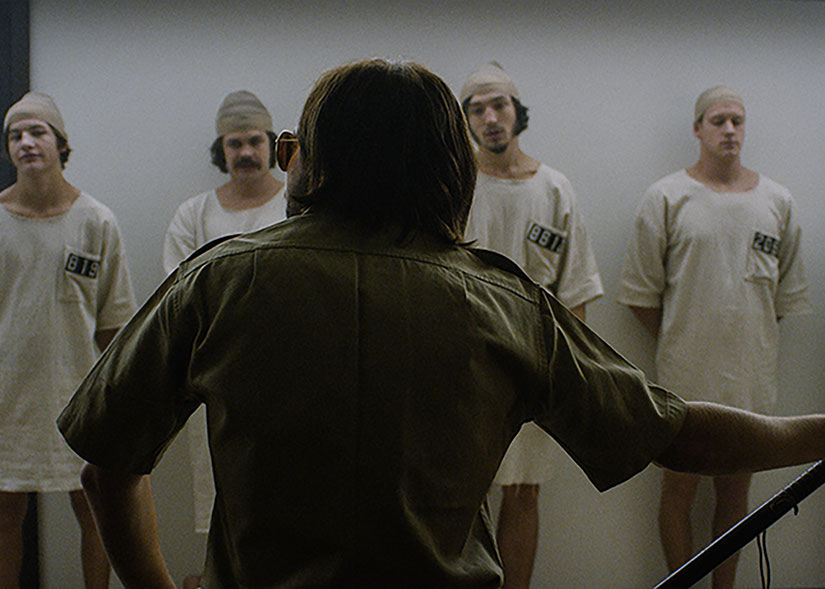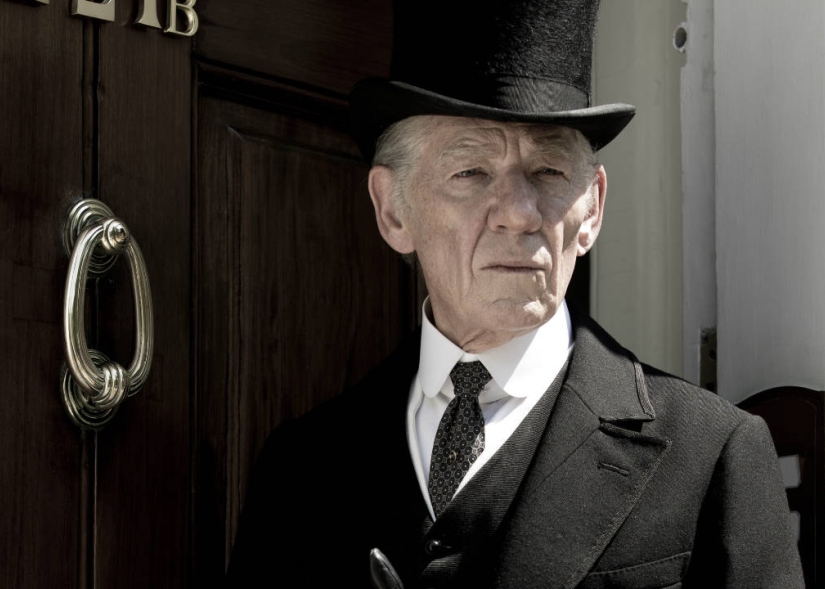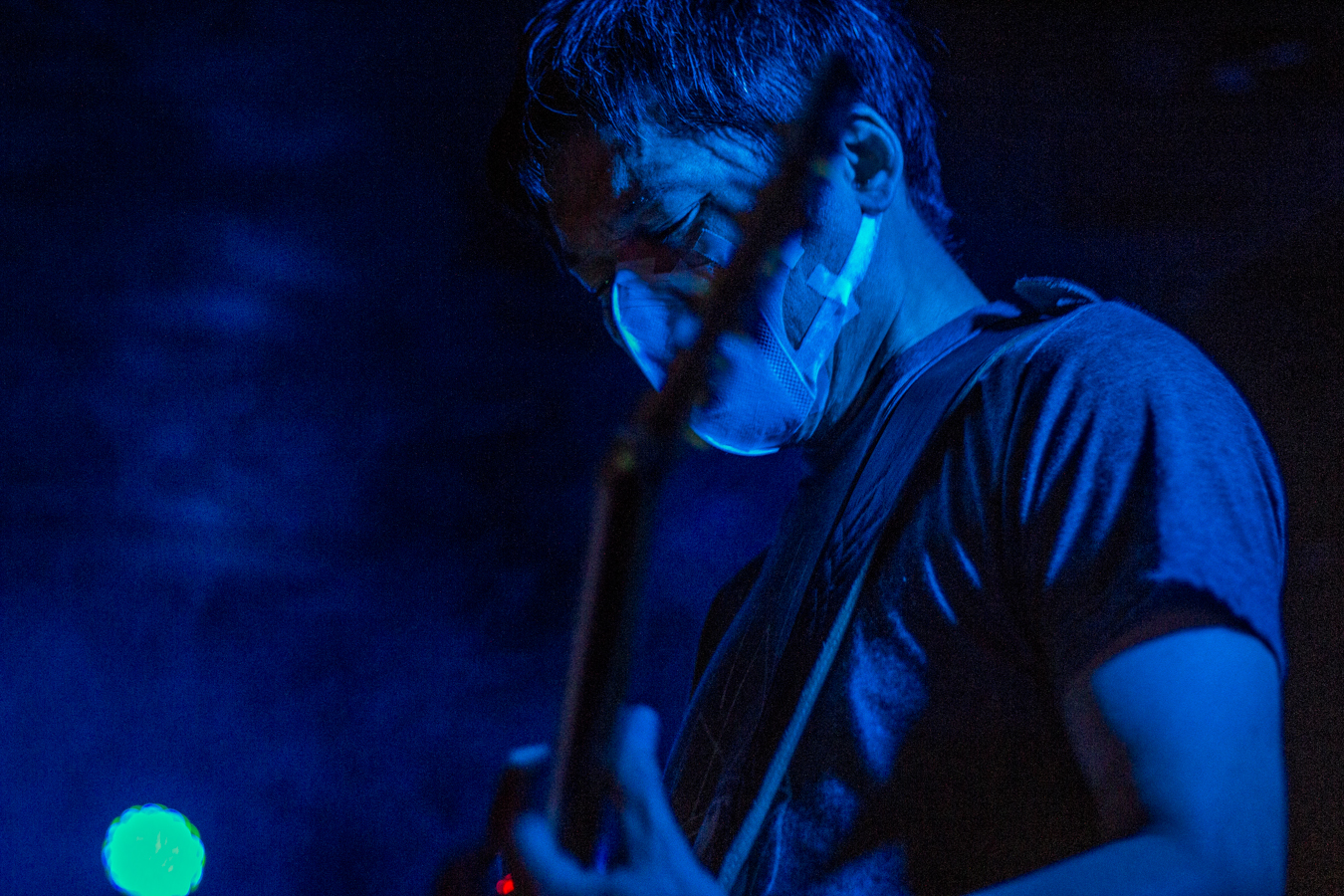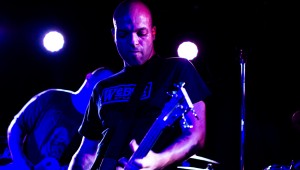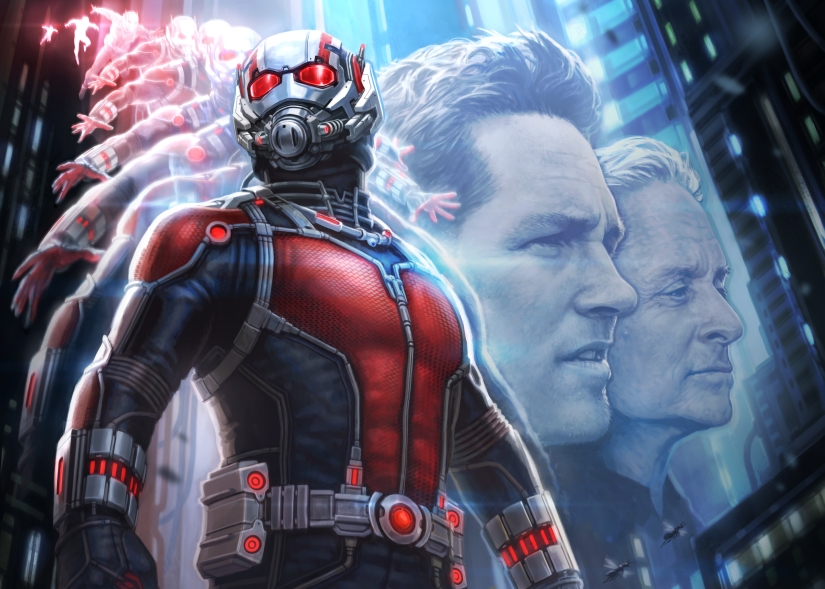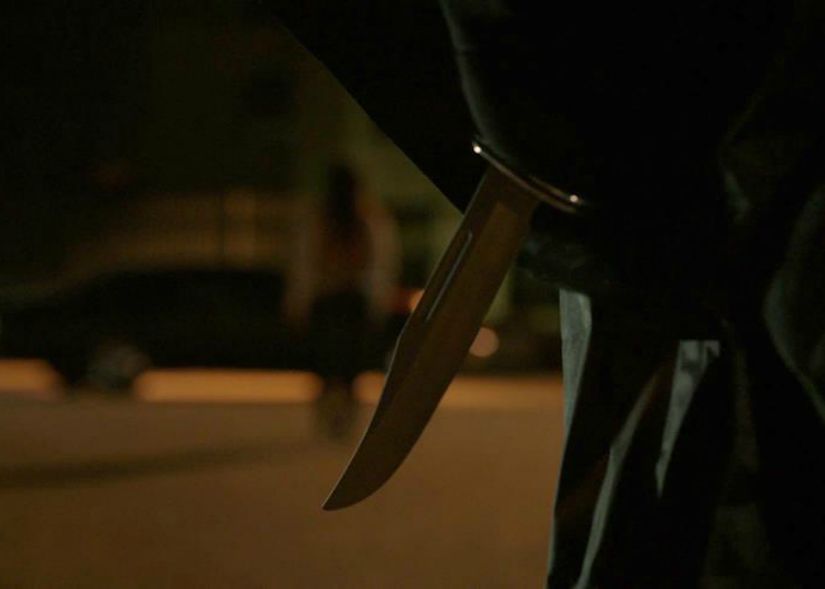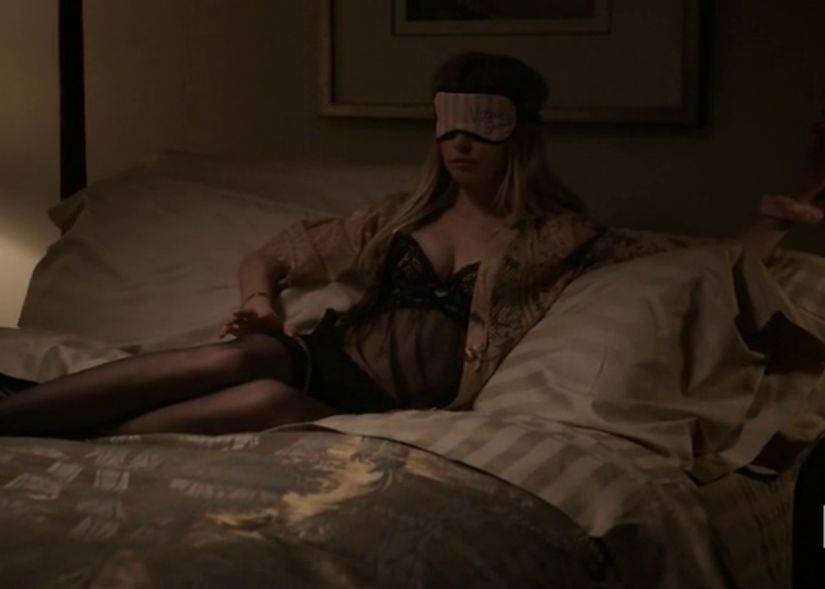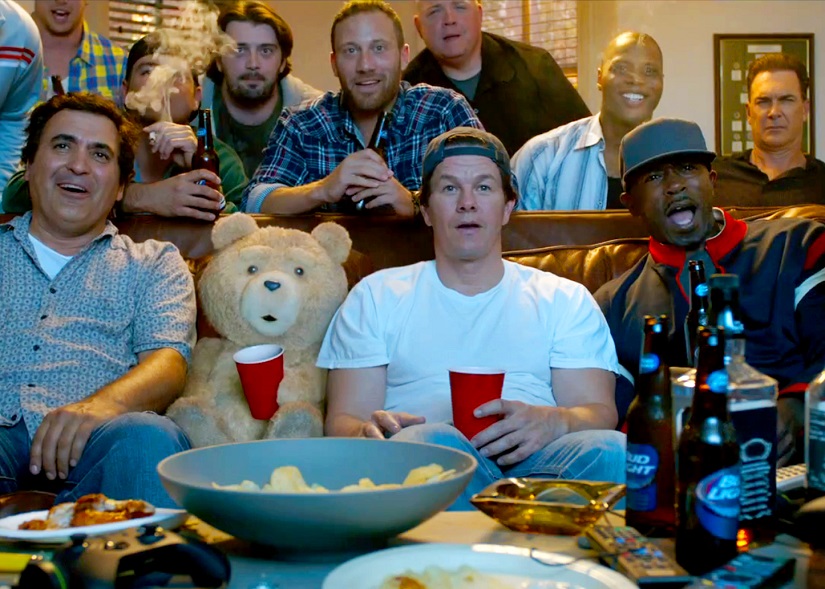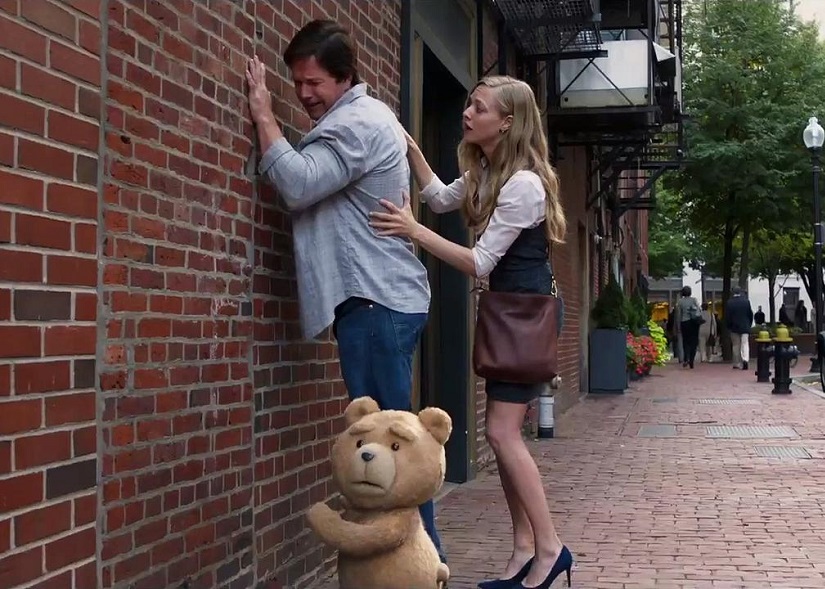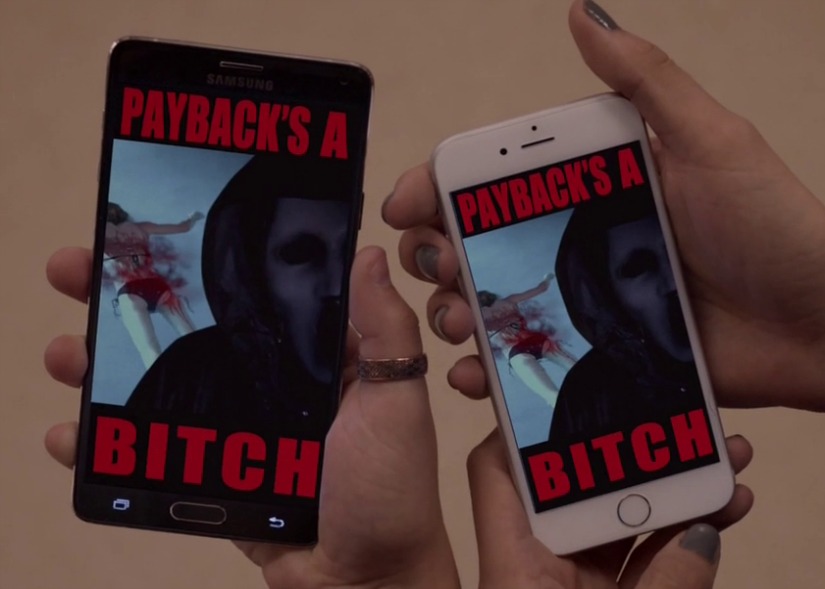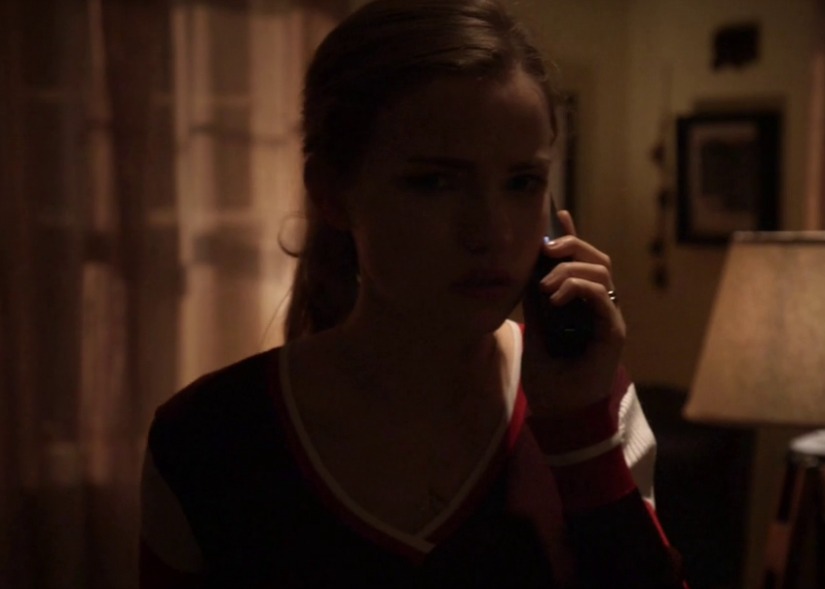WWE Battleground 2015: Results and Match Reviews
WWE Battleground 2015 will probably be notable as a SummerSlam set-up rather than its own decent PPV event. The card was pretty solid overall, yet I couldn't help but feel a strange middling quality to Battleground. Looking at the main event, the John Cena vs. Kevin Owens rematch match, and the debut of NXT women's talent on the main roster, I felt like I'd watched good work but know everyone involved is capable of much better. They're probably all saving it for SummerSlam next month, which is the #2 show of the year. That's fine. Besides, it's just Battleground, and the next few weeks of TV should be interesting.
As you probably know by now, The Undertaker is back, and he's got his eyes on Brock Lesnar. Also, The Undertaker is looking his age, and a bit like Rip Torn, for that matter. As Normal Mailer learned while making Madstone, Rip Torn fights dirty. Truly, Rip Torn is just the type of crazy son of a bitch who'd run in during the main event of Battleground 2015. If Rip Torn runs in during SummerSlam 2015, it will be one of the best pay per views of all time. (Sorry, WrestleMania X7.)
Let's go through the Battleground 2015 card match by match.
[Review] The Stanford Prison Experiment
This review was originally published as part of our Sundance Film Festival 2015 coverage. It is being re-posted to coincide with the film's limited theatrical release.
By now, most adults are familiar with the Stanford prison experiment. In 1971, a study was conducted to explore the psychological effects of prisoners and guards in a simulated prison. What resulted inevitably proved to be valuable information for psychology, but damaging to some of the participants. The Stanford Prison Experiment is a fictional take on the experiment that dramatizes the various conflicts that took place.
The Stanford Prison Experiment
Director: Kyle Patrick Alvarez
Rating: N/A
Release Date: January 26, 2015 (Sundance)
In 1971, Stanford Psychology professor Philip Zimbardo (Billy Crudup) compiles a group of volunteers to conduct his psychological study of the relationship between prisoners and guards. Left to police themselves, the guards quickly exploit their power and creating friction between the two factions. As the mistreatment continues, some of the prisoners, led by Prisoner 8612 (Ezra Miller), begin to revolt back against the guards, led by a "John Wayne-esque" guard (Michael Angarano). As the experiment devolves into a simulation and more of Zimbardo's colleagues leave the experiment, Zimbardo finds himself wholly captivated by the ensuing results. However, it isn't until Zimbardo's girlfriend (Olivia Thirlby) joins the experiment that he truly realizes his mistake and calls the proceedings off... but is it too late for some of the prisoners?
The Stanford Prison Experiment is rooted in its feelings of claustrophobia to characterize the discomfort the prisoners experience, whether they take place in the form of tight, close-up shots in both enclosed closets and open hallways. The suspense builds through the film as each prisoner slowly breaks from their psychological torture, yet The Stanford Prison Experiment never feels like there's anything truly at stake. The tension bubbles and boils, but it never really reaches the breaking point. Could this arguably have been a conscious decision to play with the film's theme of psychological torture? Perhaps, but I think that's giving the film too much credit.
Miller and Angarano shine as foils to one another, but considering the mostly anonymous nature of the experiment, no one really shines beyond the two. In fact, once Miller's character is released from the experiment, no one prisoner/actor steps up to fill the glaring hole in the film's conflict, allowing Angarano's antagonist to take over.
The Stanford Prison Experiment is a psychological suspense/thriller that ultimately doesn't pay off in the end. It doesn't help that the film is very slow moving and feels way too long. I can't express how great Miller and Angarano's performances are, but I'm not entirely sure plodding through the film is worth seeing them.
[Review] Mr. Holmes
Detective characters are often stand-ins for writers, and sometimes vice versa. The work of solving a mystery, like writing a tricky story, involves putting disparate pieces together into some form that logically holds together and seems true, no matter how improbable. Adapted from the novel A Slight Trick of the Mind by Mitch Cullin, Mr. Holmes puts the world's greatest detective in the role of a writer. Elderly and with a flagging memory, Sherlock Holmes tries to unravel the mystery of his final case and why it forced him into retirement on a Sussex farm where he tends to bees.
The idea of an aged Sherlock Holmes trying to unravel the mystery of his own memory is a fascinating set-up, especially given how elusive and illusory our memories can become as we get older. Mr. Holmes re-teams director Bill Condon and star Ian McKellan, whose careers both received a major boost in 1998 thanks to the film Gods and Monsters. The always-good Laura Linney is also in the film as Mrs. Munro, Sherlock's maid and caretaker.
However, even with all that promise, there's something about Mr. Holmes that seems so elementary.
[youtube id="WhPPq9cmPCc"]
Mr. Holmes
Director: Bill Condon
Rating: PG
Release Date: July 17, 2015
In Mr. Holmes, both Sherlock Holmes and John Watson were real people. They solved actual cases reported in the news, and Watson wrote them down as popular novels to be sold to the public. The sleuths were celebrities, and at the start of the film, a woman who sees the retired detective in passing seems starstruck. She asks no one in particular if that man going by is the real Sherlock Holmes. Sherlock is annoyed by the notoriety since not everything in the books was true. The deerstalker cap, the calabash pipe--pure invention. But by writing about the last case, Sherlock wants to set the record straight, at least for himself.
That case that triggered Sherlock's lapse in memory was a case he did without Watson present. It involved a woman who seemed demonically possessed to play a glass harmonica. We get snippets of the case throughout Mr. Holmes, which intercuts the past being written/remembered, the present in post-WWII Sussex, and a flashback to a recent trip to Japan. In the present day, the curmudgeonly Sherlock tends to his beehives while widowed Mrs. Munro looks on downtrodden. Her son Roger (Milo Parker) is a Sherlock Holmes fanboy and idolizes the detective and his shtick. While in Japan, Sherlock's mind is so addled by age and regret that he needs to write his host's name on his shirt cuff just to address the man during dinner.
There's a line by the writer Clive Barker (an executive producer on Gods and Monsters) that seems apt here: "I write to remember, and I also write to forget." We jot things down so we'll remember them for later or to coax recollection, but we also write things down so we can finally forget about them, sort of like deleting files. In Mr. Holmes, the process of writing is about forcing out memories and being able to let the memories go. Here the Barker line is lent a sense of absolution. By solving his own human mystery through the process of writing, the detective may be able to die in peace.
The big issue isn't the elements of Mr. Holmes but rather how sloppily the elements come together. The three different threads of the story don't braid nicely. Rather than complementing and enhancing one another, they intersect and interrupt and then just run semi-parallel. I felt like they were each their own discrete Elderly Sherlock Holmes adventures, though ones that happen to be faintly contingent upon one another--the difference between "stuff that happened" and "story."
The sections of the film that deal with Mrs. Munro and Roger are warm and well-acted, but almost too sweetly so, and its class drama seems only half-explored. The Japanese segment seems dashed off at times, its significance, even when revealed, a trifle in the conscience of the detective. The primary interest is the remembrance of Holmes' final case, but even that winds up dissatisfying. The solution is too convenient, as if the final piece of the puzzle falls into Holmes' mind without the effort of the conscious mind. It's a lazy cop out that lacks the surprise or sense of invention that's found in the better stories of Arthur Conan Doyle.
McKellan at least shines, and he keeps Mr. Holmes watchable even when the script treads water. He portrays Sherlock a cold and quick in his final glory days, dashing too. In Japan, McKellan plays the detective as haunted but still trying to pass as his old self. As much as he hates the pop culture idea of himself, he's trying to play the part for his host. It's in the present, in the thick of his case of memory, where Holmes is the most human and vulnerable. He dodders like an old man at moments, and he weeps for his lack of wits. He's no longer himself, and he can't figure out why. What a dreadful mystery for any detective, and what a horrible block for someone writing a memoir.
[RH Photos] Melt-Banana Returns to Chicago
Photos by Geoff Henao
On Tuesday, July 14th, Japanese noise-core band Melt-Banana returned to Chicago's Empty Bottle for the first time in 15 years. Touring across the country with them is stoner metal band, and genre-defying Hot Nerds opened the show.
For months since the show was announced, my expectations were extremely high. 2015 marks the 10-year anniversary since my first Melt-Banana show at the Abbey Pub on May 5th, 2005. And considering Melt-Banana only comes to America every other year (their last show at the Double Door back in October 2013), I was ready for my bi-annual ritual. The Empty Bottle is also my favorite venue in the city, thanks to its dive bar aesthetic and acoustics that especially benefit loud, punk rock-esque bands like Melt-Banana.
[youtube id="1lA0oJPC5cg"]
Prior to the show, I had never hear nor heard of Hot Nerds. Their eccentric style of hardcore vocals (modified through a vocoder), mixed with noise-core-influenced sampling played through a keyboard and mixer, and backed by metal drums accentuated with a double kick pedal. They were reminiscent of a young Melt-Banana and got the crowd hyped and energized.
[youtube id="VZa3qlfSPzs"]
Unfortunately, all of the energy coursing throughout the venue was lost as Torche came on to play. My prior knowledge of the band came from Ruby Hornet's own Travis Marmon's praise of the band's style of slow-burning stoner metal. However, the drastically low tempo and lack of high energy severely lowered the audience's excitement. At one point, I had begun falling asleep... standing up and directly next to one of the stage's main monitors.
[youtube id="UobRyLSn9KI"]
Nearing midnight, Melt-Banana took to the stage, backed by an enormous wall of speakers intended to replicate the duo's loud volume of noise when they originally toured as a band. However, as singer Yako and guitarist Agata grow increasingly comfortable playing as a duo (with Yako controlling a drum machine and samples with a device), so too do their shows share similarities to years past. However, their live performances have changed to reflect their adapted style of power-pop/noise-core, shedding the more extreme hardcore elements that represented their earlier years. Despite some technical difficulties with one of Agata's guitar cables and a crowd that, surprisingly, wasn't as excited for the band that I've seen in years past. Nevertheless, the crowd eventually warmed up to them as their set drew to a close.
Check out my photos from the show below!
[Review] Ant-Man
There was a concern that Ant-Man would lack personality. Edgar Wright (Scott Pilgrim vs. the World) had spent ages developing the Ant-Man screenplay, but he left the project due to creative differences with Marvel Studios. Peyton Reed replaced Wright as director and the screenplay was retooled by Adam McKay (Anchorman) and star Paul Rudd. Ant-Man wrapped principle photography in December 2014 to meet its July 2015 release date.
Shockingly, Ant-Man is good in spite of the changing hands and the accelerated turnaround from production to release. In fact, the film is chock full of giddy creativity that's lacking in other blockbusters. There's solid action throughout, but there's a healthy dose of self-effacement and self-deprecation, as if everyone involved acknowledges that you're watching a movie about Ant-Man, of all people.
While there's something to be said about my initial low expectations, Ant-Man succeeds primarily because it's allowed to be its own little, lighthearted animal in the big, bloated Marvel Cinematic Universe.
[youtube id="pWdKf3MneyI"]
Ant-Man
Director: Peyton Reed
Rating: PG-13
Release Date: July 17, 2015
Scott Lang (Rudd) is an ex-con who gets back into cat-burgling when he can't make ends meet in civilian jobs. Thanks to his MacGyver-like cunning in a nicely crafted heist sequence, he steals a super suit that belongs to scientist Hank Pym (Michael Douglas). The suit allowed Dr. Pym to shrink down to insect size and carry out covert military operations for the U.S. Government. Scott teams up with Pym and Pym's daughter Hope (Evangeline Lilly) in order to stop Darren Cross (Corey Stoll), a protege of Pym's who wants to use similar shrinking technology to create an army of miniature soldiers for the highest bidder.
Even though Ant-Man is a origin story, it never feels bogged down in set-up like many other origin stories. Pym passes his heroic legacy on to Scott, which makes it feel like we've hopped into the middle of a larger story rather than the cold start of a new one. The brisk, comic pace conveys Scott's transition from sarcastic doofus to unwitting-hero to reluctant-hero to superhero. A key training sequence mid-film is full of recurring gags and variations on recurring gags, each one offering a sense of character development and progression. Like a competent kung-fu film from the 1970s, we watch someone with talent but no discipline refine themselves under the tutelage of a master. There's clunkiness in the way Ant-Man deals with father-daughter and surrogate-father-son relationships, however, which is the foundation for many of the character interactions. It's serviceable and occasionally saccharine, though the father-child theme at least yields a few genuine moments of unexpected emotion.
When Scott learns what Cross could do with shrinking technology, he says that they should call The Avengers. Pym sneers that all the Avengers do is drop cities from the sky, which seems to define the contrast in Ant-Man's approach to action. The movie can't possibly outdo The Avengers in terms of the scope, so Ant-Man instead relies on the humor of its small stature. They can't drop cities from the sky, but they can blow up a scale model to simulate citywide destruction; ditto the derailment of a Thomas the Tank Engine train set. Seeing Scott grab the grooves of an EDM record on a turntable or run alongside a colony of ants recalls both The Incredible Shrinking Man and Honey, I Shrunk the Kids, each of which found a kind of imaginative awe in the miniature world. It's mostly unfamiliar territory for modern blockbusters, almost all of which every weekend depict the total destruction of major cities and the deaths of thousands. You see one metropolitan city get completely decimated, you've seen 'em all. Ant-Man is refreshing by comparison.
Rudd's a charming scoundrel with a heart of gold, and he carries the lead role with some fine wisecracks and slacker charisma. Douglas gets to do the old-dude-deadpan routine, and also plays concerned father to Hope and disappointed father-figure to Cross. On the note of Hope, she's saddled with the trope of the icy careerist, but there's enough in the writing (apparently added during the rewrite phase) and in Lilly's performance that makes her a bit more human. Scott's supporting thieves add personality when on the screen, particularly Luis played by Michael Peña, whose comic timing and delivery propel some of my favorite non-action sequences in the film.
There's something I've noticed as Phase Two of the Marvel Cinematic Universe draws to a close. The standouts for me have been the films that got away from straight-up superheroics. Even though Avengers: Age of Ultron did great at the box office, the movie was a generic rehash of the first Avengers. By contrast, Captain America: The Winter Soldier added the paranoia of political thrillers from the 1970s, and Guardians of the Galaxy was an '80s misfit movie (i.e., The Goonies in space). Since the Marvel Cinematic Universe is driven by producers/Marvel Studios rather than by directors/screenwriters, mixing a different tone or genre into the superheroics seems like a form of creative triangulation. To put it another way, hybridty and genre cross-pollination is the best way for a Marvel film to develop its own identity given the way that they're made.
In that regard, Ant-Man belongs in that standout class from Phase Two. The film sticks to its lighthearted tone and blends the madcap imagination of '50s and '60s sci-fi films with the meticulous, ticking-clock operations of a cinematic caper. Ant-Man's a movie with its own sense of character even though it isn't driven by a directorial voice or vision. The filmmakers of Marvel's Phase Three can learn something useful from the little guy.
[Review] MTV's Scream: Wanna Play a Game?
In my review of the last episode, I said I was a fan of Scream's willingness to be awful. There's always an inherent fun with shows that are written, acted, and directed terribly if there's a commitment to the bit. With episode three, the commitment is in full force and we've gotten some pretty cheesy murder television. Either I've been subject to this for too long that I've become numb to it, or it's making its way around to being interesting again, but episode three is definitely a highlight.
Then again, it's a highlight of a show that increasingly aims low so I'm not sure what to think.
One of the bigger tidbits floating around during this year's San Diego Comic Con was that the showrunners weren't planning to kill someone every episode. Well, three episodes in and we've gotten a new victim for each one. But there's still the same problem of not giving a damn every time one of these kids dies because we don't know them well enough beyond stereotypical horror movie tropes. This week's victim was Riley, the nerdy girl who liked the nerdy boy Noah (who's the Jamie Kennedy stand in, and is way more annoying than that character ever was). It was a heavily telegraphed murder since we actually got some development of her character. Although it was only that she wanted to pursue a relationship with Noah (and that she cares about others, something the rest of the cast doesn't seem to share), the fact that she got any attention at all meant she was marked for death. If there's one thing the show can learn from other horror shows' mistakes, is that you could totally develop folks without killing them minutes later.
But I guess that's the point. The only interesting plot development of note this episode was that Emma's (main girl) mother revealed she was the main girl victim during Brandon James' streak years ago. Because of this new information, awesomely revealed by the killer's voice a la Scream films, Emma's beginning to trust the killer's voice more than her friends and family. As the show's Ghostface begins to show his prowess with phone technology, he's got access to everyone's voices and phone numbers, we're beginning to enter familiar yet unknown territory. It's an homage to the films, yet Emma is getting more and more involved with the deaths. There was some honest to God tension as Emma had to choose which of her friends would die. It also highlighted something the Scream films used to love, that the killer felt like he could be everywhere at once. Too bad the show's writing is still the woooooooooorst.
If things can stay in this direction, we'll get the terrible greatness we deserve soon enough.
Assorted Musings:
- I don't know much about video games, but it's hard to believe they have some of the most "dramatic scenes of all time."
- The whole teacher/student sex thing is starting to bother me. One of both involved need off the show soon.
- The show is clearly setting up the two jock dudes as part of some hidden camera website ring, but I just don't care. Either make one the killer or go home.
- #RunRileyRun? Really MTV?
[Review] Ted 2
Despite having little affection for either the comedy stylings of Seth Macfarlane or the acting career in general of Mark Wahlberg, I ended up being quite fond of Ted. Macfarlane's propensity towards hollow shock value, vulgarity and incessant, context-free pop culture references were softened by the need to develop actual characters in telling a story across a feature-length period of time (not that he paid much heed in his subsequent, abysmal directorial follow-up, A Million Ways To Die In The West) and Wahlberg's willingness to send up his tough guy image whilst playing opposite a foul-mouthed teddy made an instantly charming partnership.
The good news is that Ted 2 offers more of the same. Wahlberg is on stupendous form and his riffing with Macfarlane's Ted continues to be a seemingly inexhaustible source of laughs. On the downside, as was the case for Pitch Perfect 2, more of the same and nothing more feels decidedly underwhelming in the wake of an unexpectedly strong first outing. Ted 2 isn't short of terrific sight gags and humour at once utterly filthy and delightfully childish, but lacks the spark of joy and surprise which, like the eponymous bear, elevated the original to something greater than its component parts.
[youtube id="S3AVcCggRnU"]
Ted 2
Director: Seth Macfarlane
Rating: R
Release Date: June 26th, 2015
At the centre of the plot is a civil rights allegory in which Ted, wishing to conceive a child with his new wife, Tami-Lyn, discovers that the State does not legally consider him a person and has revoked all his rights. With the help of an aspiring lawyer (Amanda Seyfried), whose lack of pop cultural knowledge is more than made up for by an avid enthusiasm for weed, he and John travel to the Supreme Court to get the ruling overturned. Despite being atrociously argued every step of the way, there's no doubting the sincerity of the movie's attempt to raise pertinent and serious social issues, but in doing so, the movie is starkly divided between the relatively seriously handled courtroom scenes and the juvenile silliness piling up elsewhere. It's a credibly ambitious plot for an otherwise by-the-numbers sequel, but gracelessly handled in a way which drags the movie down whenever it comes up in any meaningful capacity.
Seyfried also struggles to find her place or find any life for a character who never adds up as a credible human being. While there's no reason an aspiring lawyer couldn't imbibe copious quantities of drugs in her downtime, from a dick-shaped bong no less, she shares a similar problem to the courtroom scenes in that she seems a completely different person when we're expected to respect her competence in a professional capacity. Macfarlane also puts her at the centre of a number of mean-spirited jabs directed at Lori, John's romantic interest in the previous movie and now ex-wife. Lori was of course played by Mila Kunis, Macfarlane's own ex, and the constant references to what a bad fit she was for John and how much she tried to change him only come across as Macfarlane allowing his personal issues to bleed into the screenplay.
Fortunately, when the movie pulls back to the core of what made the first one work, the relationship between Thuderbuddies John and Ted, everything clicks back into place. The hit rate of the jokes isn't especially high, but the sheer number means laughs come fairly regularly regardless. The best of these are the quick cutaways or short, sharp surprises, such as a magnificent sight gag involving a glass table, assaulting joggers with apples or Ted popping out of a drawer to randomly punch John in the face. The fact Wahlberg reacts as though he's been hit by a bulldozer only makes it all the more delightfully mad, and his commitment to selling every stupid line and humiliation builds to a fever pitch of idiotic effervescence. Macfarlane makes a terrific sparring partner, aided by Ted's delightfully expressive animation, and while some of the jokes are stretched out far beyond their reasonable limit - one involving harvesting Tom Brady's sperm goes on for minutes when it would be much more effective delivered as a one-shot cutaway - any scene the two share together is immediately among the movie's best and funniest.
It's a shame the strength of the core relationship is so routinely undermined by Macfarlane's self-indulgence, not only through the extensive prolonging of certain jokes, but in artificially halting the movie right at the beginning for a thoroughly uninspired old-timey song and dance number, in recalling Giovanni Ribsi as Donny, one of the worst parts of the first movie, to provide an unneeded additional antagonist, or in pop culture references that feel increasingly half-hearted. There's nothing here as glorious as John's mauling of Rita Coolidge's All Time High, for instance. John and Ted work so well together that they just about hold everything in place and some of the one-liners, particularly one about the Kardashians, are so depraved they verge on being applause-worthy. As hard as the movie is to dislike, however, a return visit to the Tedverse only makes its faultlines increasingly apparent.
[Review] MTV's Scream: Hello, Emma
After watching the first episode of MTV's Scream TV adaptation, I had no idea how to feel. It wasn't good enough to be considered legitimately entertaining, and it wasn't bad enough to be illegitimately entertaining. The worst part of it all was the poorly written dialogue. And considering the pilot episode was written by film series' writer Kevin Williamson, I had no idea who or what to blame. But a show is never as wonky as its series premiere, so I had a little bit of hope going into episode two.
From the looks of "Hello, Emma," we're heading into "so bad, it's good" territory with this show and I want to see where it leads.
Episode two essentially follows the same formula as the pilot as it leads off with a teen death that somewhat spurs the plot along. As a fallout from being outed by an internet video filmed by main girl Emma and previous victim Nina, shy Christian girl Rachel cuts herself (with razor blades sitting in a heart container, go figure) and eventually is hung by the killer. As everyone continues to not care (and I had a hard time myself since we've only seen people killed in the episode they were introduced), main girl Emma continues to prove she's just the worst. Not only did she passively bully her former best friend, she also is torn between a terribly conceived love triangle between her jerk jock boyfriend and the mysterious new transfer student with the Skeet Ulrich mustache (who's probably also the killer). We end up at a random basketball game, the nerd guy Noah paints "Doosh" on some jerk guy's truck and goes on a date with the cute nerdy girl, and the killer reveals his masked face to the populace.
Importantly, we got an explanation for the new mask. It's apparently the face of the Lakewood's first killer Brandon James, but it still doesn't save it from looking wonky. And although Scream 4 already dealt with current technology in a cool, interesting way, I'm surprised it took until a TV show to send a mass .gif image. We also got more screen time with the killer's voice and, like in Scream 3, he's got a voice changing device. Hopefully the newly introduced Courtney Cox stand in, Piper Shaw (a podcaster, since news is so old fashioned now), can do something about that. But I'm still having a hard time connecting with any of the characters I keep getting told I'm supposed to care about.
I don't think we're supposed to. When you get moments like a random extra speaking super loudly in the bathroom "They've got blood on their hands" to absolutely no one but Emma sitting in the stall, we're just supposed to enjoy how hyper aware and terrible this is. The fun's starting to poke out of the seams, and "Hello, Emma" is actually filled with a few entertaining sequences. Still not perfect, but not as bad as before. Emma is nowhere as badass as Sidney Prescott yet.
Assorted Musings:
- Hey I remembered names now! Not that it does anything for character development...
- I can't get over how terrible Skeet Ulrich mustache guy's hair is.
- Got to admit, the "Doosh" gag got a good laugh out of me since no one bothered to point out it was spelled badly.
- Did Emma and her mom really share a moment over her friend's dead and open body?
- This episode featured a sloppy hanging death (where the killer actually moved the death scene and showed inexperience not found in the films), but it's a neat way to get around the show's gore-less situation.
- More Piper Shaw please.

